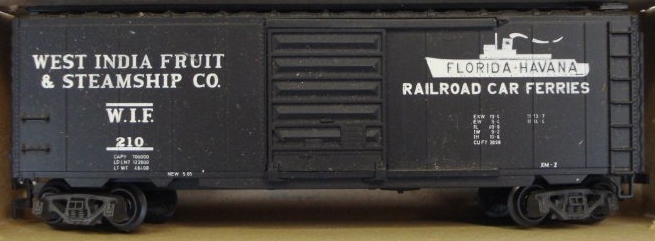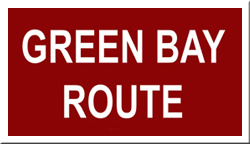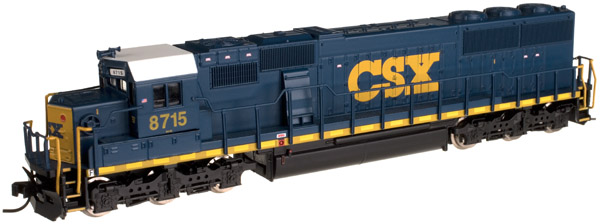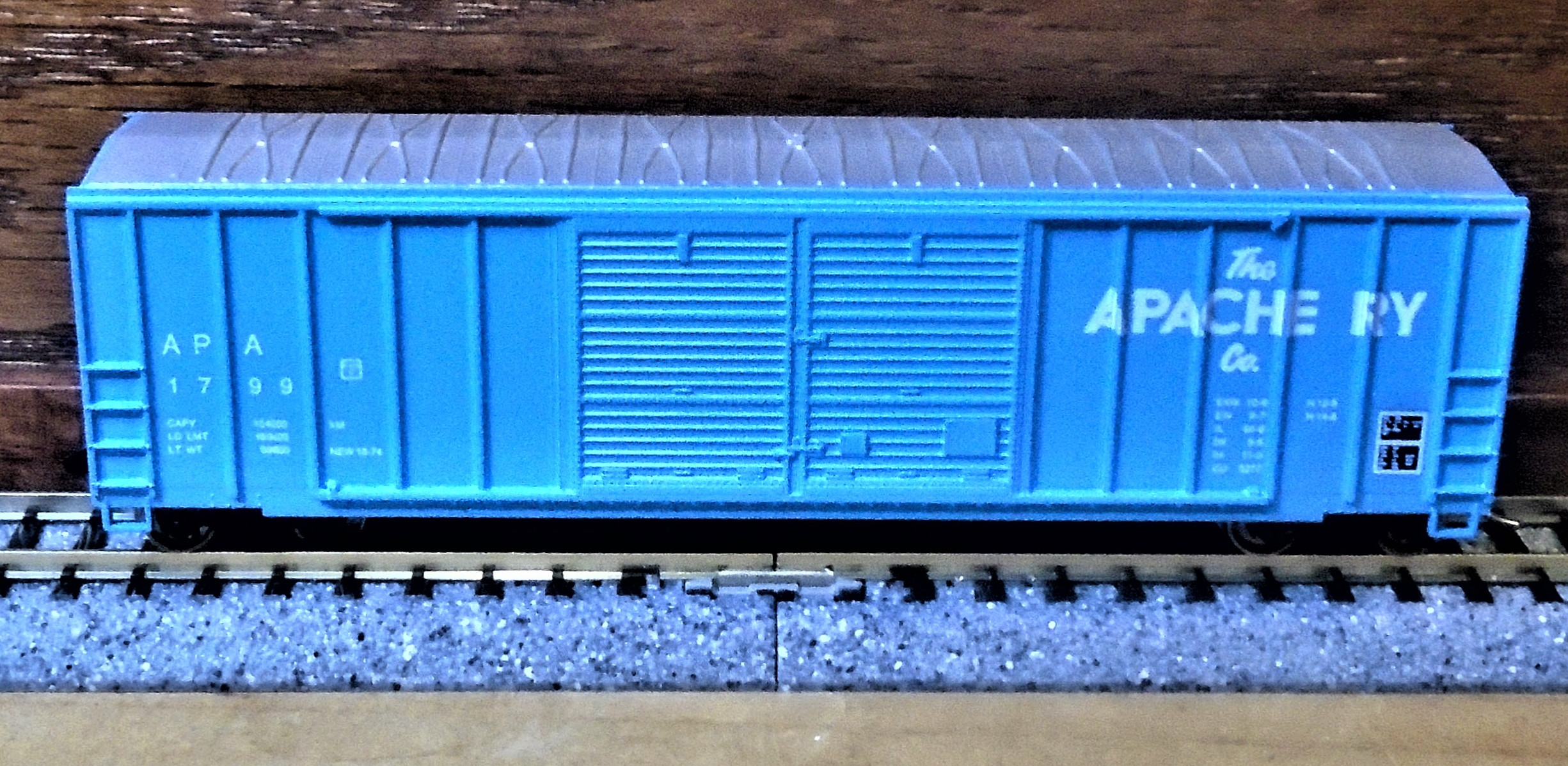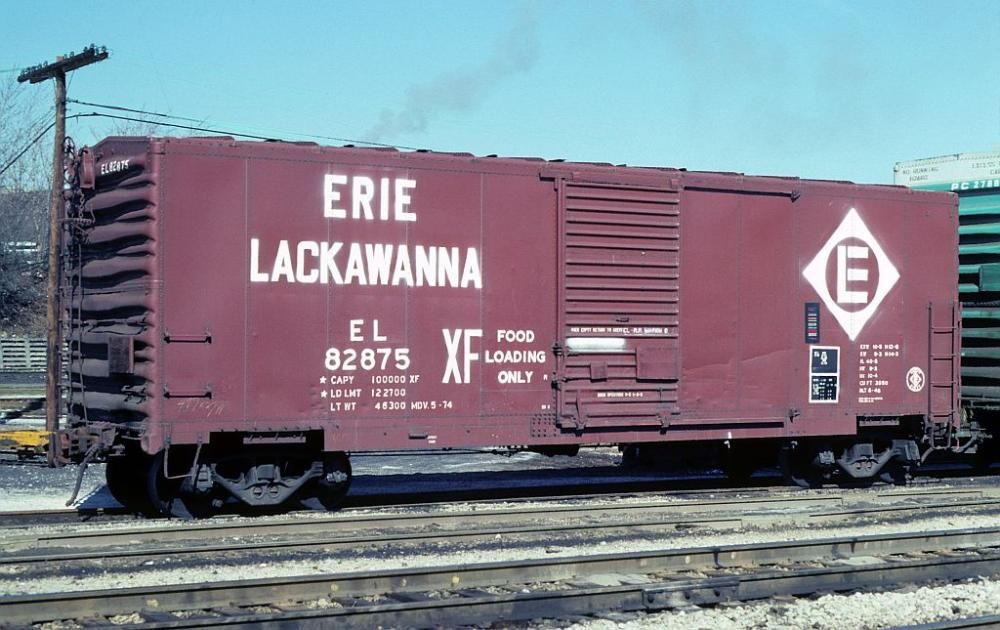Minitrix - 3194 - Boxcar, 40 Foot, Steel Single Door - West India Fruit - 210
Click to see the details
history
Click to see the details
collector
| Stock Number | 3194 |
| Tertiary Stock Number | 51 3194 00 |
| Original Retail Price | $1.79 |
| Brand | Minitrix |
| Manufacturer | Roco |
| Body Style | Roco Boxcar 40 Foot Steel |
| Prototype Vehicle | Boxcar, 40 Foot, Steel Single Door (Details) |
| Road or Company Name | West India Fruit (Details) |
| Reporting Marks | WIF |
| Road or Reporting Number | 210 |
| Coupler Type | Rapido Hook |
| Coupler Mount | Truck-Mount |
| Wheel Type | Nickel-Silver Plated Metal |
| Wheel Profile | Deep Flange |
| Release Date | 1973-01-01 |
| Item Category | Rolling Stock (Freight) |
| Model Type | Boxcar |
| Model Subtype | 40 Foot |
| Model Variety | Wood Double-Sheathed |
| Prototype Region | North America |
| Prototype Era | NA Era III: Transition (1939 - 1957) |
| Scale | 1/160 |
| Track Gauge | N standard |
Model Information:
These cars were made by Roco under contract for Trix for the Minitrix product line. This car has been imported by Aurora, Model Power, and directly by Minitrix under their own label as well as by Aurora under the "Postage Stamp" label (Aurora and Model Power). The same cars were available both individually as well as parts of sets. This body style represents the single-sliding-door version.
Prototype History:
Steel boxcars became a common site in the post-WWII period (also known as the transition era). Steel construction resulted in a lighter, lower-maintenance car that was less expensive to acquire and operate. The economies of scale that happened during the war along with a cessation of orders from the military resulted in a plentiful, inexpensive source of metal and aluminum for the railcar manufacturers which in turn led a complete replacement of the aging wood-sheathed fleets with new steel cars.
Road Name History:
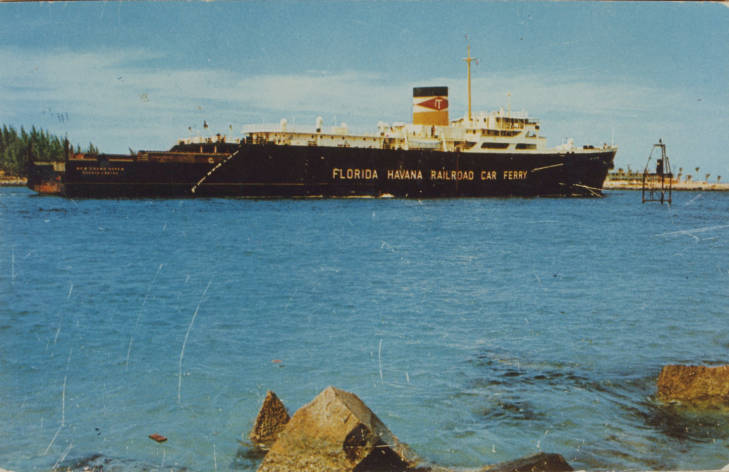 The West India Fruit and Steamship Company operated a railcar ferry service between the Port of Palm Beach, Florida, and Havana, Cuba, from shortly after World War II until deteriorating relations between the United States and Cuba culminated in the United States embargo against Cuba. The company offered six of its ferries for sale in June 1961, citing the fact that "trade had dwindled to the vanishing point" and service ceased in August 1961.
The West India Fruit and Steamship Company operated a railcar ferry service between the Port of Palm Beach, Florida, and Havana, Cuba, from shortly after World War II until deteriorating relations between the United States and Cuba culminated in the United States embargo against Cuba. The company offered six of its ferries for sale in June 1961, citing the fact that "trade had dwindled to the vanishing point" and service ceased in August 1961.
WIF&SS Co., in its role as a car ferry operator, acted as both a railroad and a steamship line. The service was described as “The Superior All-Rail Route to Cuba.” Freight from anywhere in North America could be routed to Cuban consignees “in the same cars and packaging in which it left point of origin in the United States.” This had advantages enumerated in WIF&SS Co. sales literature – reduced transit time, less handling of freight, and no repackaging.

WIF&SS Co., in its role as a car ferry operator, acted as both a railroad and a steamship line. The service was described as “The Superior All-Rail Route to Cuba.” Freight from anywhere in North America could be routed to Cuban consignees “in the same cars and packaging in which it left point of origin in the United States.” This had advantages enumerated in WIF&SS Co. sales literature – reduced transit time, less handling of freight, and no repackaging.
Brand/Importer Information:
Trix is a German company that originally made Trix metal construction sets. one of its co-founders was Stephan Bing, the son of the pioneer toy-maker industrialist Ignaz Bing. In 1935 the company began producing the electrically powered model trains that it became famous for, under the Trix Express label. Prior to the outbreak of World War II the Trix company produced a small range of fairly unrealistic AC powered three rail models running at 14 volts.
N gauge models under the Minitrix brand were made from the late 1960s mostly of European prototypes (German and British primarily). North American prototypes were also manufactured and marketed under the Aurora "Postage Stamp" brand; later these items were sold under the American Tortoise, Model Power and Con-Cor brands. Trix sometimes utilized North American consultants to aid in the design of this portion of the product line. The "Hornby Minitrix' brand was used in the 1980s for a short lived range of British outline models using the earlier product tooling.
Trix's owner in the 1980s and 1990s was Mangold, which went bankrupt in the late 1990s and Märklin purchased the assets in January 1997. In part, this purchase was a reflection of Märklin's need for added production capacity; Trix had been manufacturing certain items for Märklin in previous years. The purchase was also in response to the earlier purchase of the Karl Arnold company by the Italian company Rivarossi; Märklin were very keen to take over Trix market share in 2-rail H0 and especially Minitrix, until then Märklin had not marketed N gauge models. In 2003, Märklin introduced its first N gauge models under the well established Minitrix brand. A number Märklin H0 scale three-rail AC locomotives have also been introduced in two-rail DC versions under the Trix logo and many models are shared between the two brands.
From Wikipedia
N gauge models under the Minitrix brand were made from the late 1960s mostly of European prototypes (German and British primarily). North American prototypes were also manufactured and marketed under the Aurora "Postage Stamp" brand; later these items were sold under the American Tortoise, Model Power and Con-Cor brands. Trix sometimes utilized North American consultants to aid in the design of this portion of the product line. The "Hornby Minitrix' brand was used in the 1980s for a short lived range of British outline models using the earlier product tooling.
Trix's owner in the 1980s and 1990s was Mangold, which went bankrupt in the late 1990s and Märklin purchased the assets in January 1997. In part, this purchase was a reflection of Märklin's need for added production capacity; Trix had been manufacturing certain items for Märklin in previous years. The purchase was also in response to the earlier purchase of the Karl Arnold company by the Italian company Rivarossi; Märklin were very keen to take over Trix market share in 2-rail H0 and especially Minitrix, until then Märklin had not marketed N gauge models. In 2003, Märklin introduced its first N gauge models under the well established Minitrix brand. A number Märklin H0 scale three-rail AC locomotives have also been introduced in two-rail DC versions under the Trix logo and many models are shared between the two brands.
From Wikipedia
Manufacturer Information:
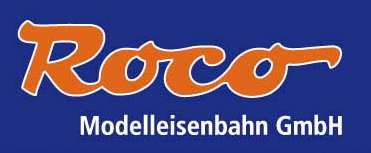 The company was founded in 1960 by Ing. Heinz Rössler and started with a plastic Minitanks series of military vehicles. After export to the USA became successful, the model line was expanded with model trains in HO scale and the smaller N scale. TT scale was also subsequently added to the product line. The model rail product line covers many European countries including Germany, Belgium, Luxembourg, France, Spain, Austria, Italy, Switzerland, Sweden and the Netherlands, and also the USA.
The company was founded in 1960 by Ing. Heinz Rössler and started with a plastic Minitanks series of military vehicles. After export to the USA became successful, the model line was expanded with model trains in HO scale and the smaller N scale. TT scale was also subsequently added to the product line. The model rail product line covers many European countries including Germany, Belgium, Luxembourg, France, Spain, Austria, Italy, Switzerland, Sweden and the Netherlands, and also the USA.
On July 15, 2005 ROCO Modellspielwaren GmbH was declared bankrupt. From July 25 the company continues as Modelleisenbahn GmbH, but still uses the Roco brand and associated logo. On October 1, 2007, distribution of the 'Minitank' product series was assigned to the German model car manufacturer Herpa.
Since February 2008 Modelleisenbahn also owns Fleischmann, which like Roco had gone bankrupt. The two companies continue as separate brands under Modelleisenbahn GmbH, while benefiting from economies of scale through joined development projects, marketing and procurement.
From Wikipedia

On July 15, 2005 ROCO Modellspielwaren GmbH was declared bankrupt. From July 25 the company continues as Modelleisenbahn GmbH, but still uses the Roco brand and associated logo. On October 1, 2007, distribution of the 'Minitank' product series was assigned to the German model car manufacturer Herpa.
Since February 2008 Modelleisenbahn also owns Fleischmann, which like Roco had gone bankrupt. The two companies continue as separate brands under Modelleisenbahn GmbH, while benefiting from economies of scale through joined development projects, marketing and procurement.
From Wikipedia
Item created by: gdm
on 2017-02-06 15:51:45
Last edited by: gdm on 2022-12-27 09:38:15
If you see errors or missing data in this entry, please feel free to log in and edit it. Anyone with a Gmail account can log in instantly.
Last edited by: gdm on 2022-12-27 09:38:15
If you see errors or missing data in this entry, please feel free to log in and edit it. Anyone with a Gmail account can log in instantly.


